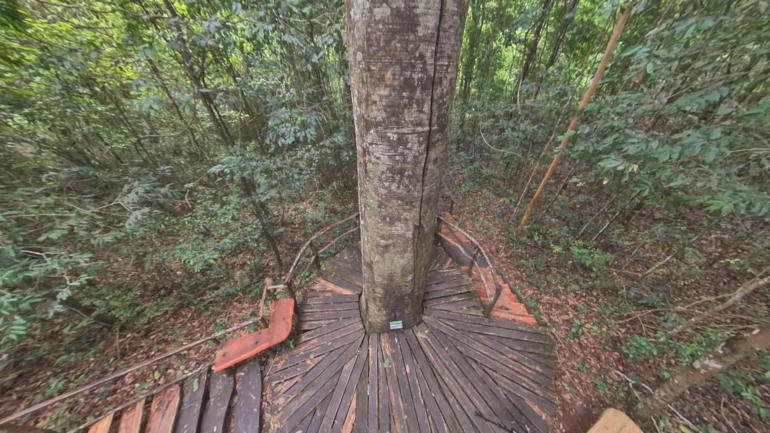How can we save the Amazon rainforest? It’s a question that is becoming increasingly urgent as concern grows that the world’s largest original forest – a key defense against global warming – risks being destroyed by farming, logging and climate change.
One solution may lie partly in private hands.
In 1990, the government of Brazil created a system of private nature reserves, known as RPPNs, to complement state-owned national parks. Under the law, the land must be protected, but it may be used for research, education and eco-tourism to provide income. In return there are tax advantages for owners.
Today there are 700 RPPNs across Brazil, protecting almost one million hectares.
Correspondent Stephen Gibbs reports on what could be a model for the future.
 CGTN America
CGTN America
 The first protected tree at the reservation is still growing
The first protected tree at the reservation is still growing
